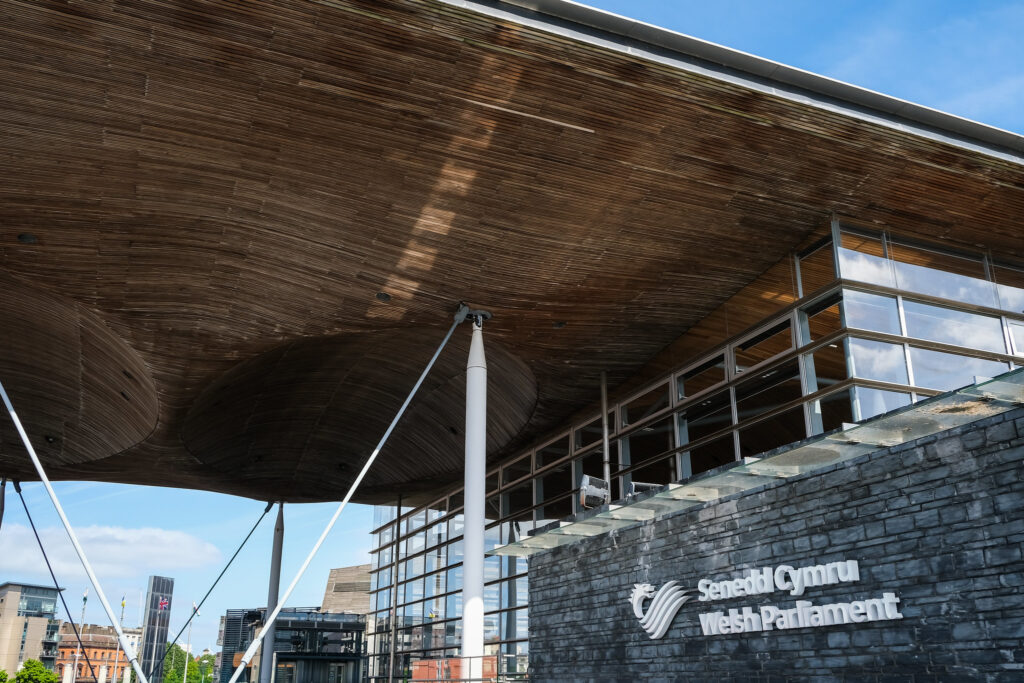In the week the Senedd turned 25, substantial reforms to the way the parliament works were passed, marking the next chapter in the ever-evolving story of devolution.
The Senedd Cymru (Members and Elections) Bill, now passed by a supermajority of MSs, represents the next step in the ongoing journey of devolution in Wales.
Expanding the Senedd to 96 Members is a vital move to keep pace with the growing list of responsibilities and powers devolved to Wales over the last decade. It puts the Senedd on par with comparable democratic nations, not merely amongst other parts of the UK, but on a global level.
The Senedd now oversees a budget of over £23 billion. It can create legislation which impacts key parts of life in Wales and raise its own taxes. It is critical that the Senedd is large enough to enable proper scrutiny of, and creation of policy. The reforms are a step in the right direction.
Better scrutiny leads to better policy. With 96 Members, the Senedd is far better equipped to fulfil its democratic function.
When budgets are so tight for Welsh Government, it is even more important to invest in increasing the capacity of the Senedd to properly scrutinise its budget and activities. Better scrutiny leads to better policy. With 96 Members, the Senedd is far better equipped to fulfil its democratic function.
The IWA is therefore glad to see this wide-ranging Bill become law.
Shortfalls of the Bill
Whilst we welcome the Bill, and recognise the important step forward it represents, it is, however, imperfect. In particular, changing the electoral system to a closed list system elected under proportional representation is an imperfect fix. The new system acts to entrench political parties’ power over the makeup of the Senedd and does not enable electors to vote for an individual candidate. With turnout in Senedd elections in Wales consistently lower than those for UK elections, this erosion of the link between candidate and constituency may add to the disconnect between electors and elected.
These concerns remain and we would urge this system to be reviewed and reformed after the 2026 Senedd elections.
Robust debate and agenda-setting research.
Support Wales’ leading independent think tank.
The existence of a review mechanism, which is on the face of the Bill, is a recognition of the need to reassess the impacts of reforms on our parliament and democracy. We hope that the review of the reforms, due to take place after the 2026 Senedd election, will consider a move towards a Single Transferable Vote system, which is fairer and more representative than those now put in place.
Recall reform
We are also glad to see the intention to take forward recommendations on implementing a recall system for Members. It is important that the public and the Senedd have mechanisms for managing and upholding standards. This moment of reform of the Senedd offers the opportunity to do just that, putting in place future-proof systems to ensure that the public’s right to expect high standards from their elected officials is sustained.
From reform to action
Vitally the proof of the reform package provided in the Bill will be in how an enlarged and empowered Senedd will lead to better outcomes and a stronger democracy for the people of Wales.
As the IWA’s work, including our Building Bridges report, has established, we must go beyond the ballot box in efforts to support democratic and civic engagement at all levels of society.
Ahead of the 2026 elections, we urge Members and political parties to consider how this capacity is best put to use. More backbenchers, extra capacity for committee sessions, more consequential debating time in the Senedd, more frequent legislation are all outcomes which would need to be properly considered.
It is also important to say that these reforms are but one intervention in efforts to reinvigorate our democracy in Wales from a state of sustained malaise. As the IWA’s work, including our Building Bridges report, has established, we must go beyond the ballot box in efforts to support democratic and civic engagement at all levels of society. A fit-for-purpose Senedd is but one piece of the democratic puzzle.
The passing of the Senedd Cymru (Members and Elections) Bill is a step towards a more democratic Wales, but it is far from the last step on that journey. The final report of the Independent Commission on the Constitutional Future of Wales published earlier this year clearly articulated the instability and inefficiency of the current devolution settlement. As we look to further entrench and reform devolution, these reforms make the Senedd fit for the present and fitter for the future.
All articles published on the welsh agenda are subject to IWA’s disclaimer. If you want to support our work tackling Wales’ key challenges, consider becoming a member.





